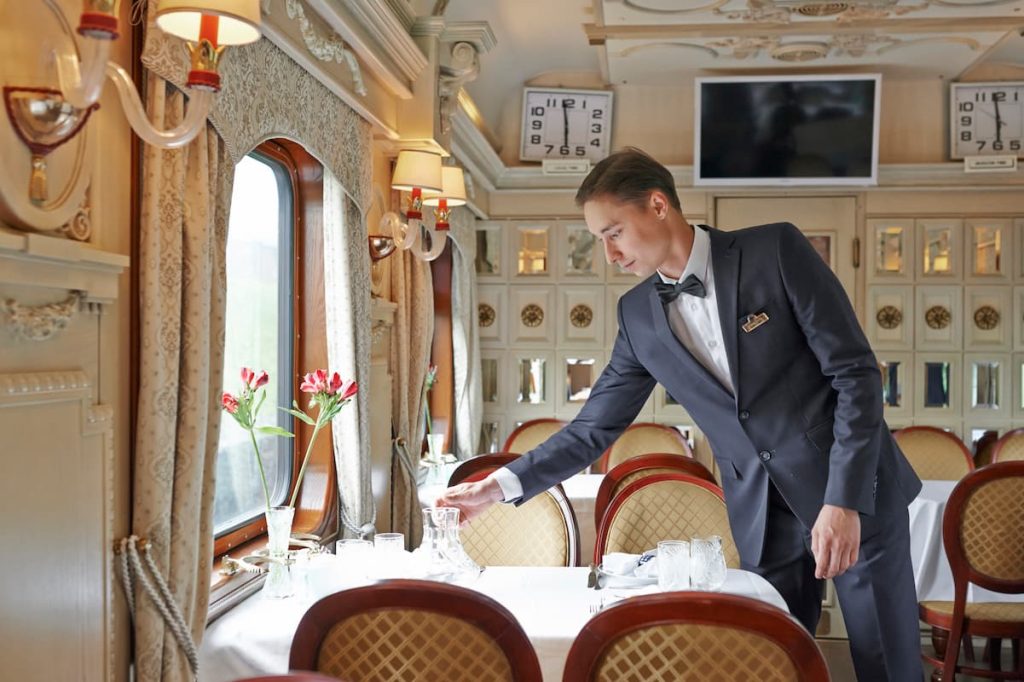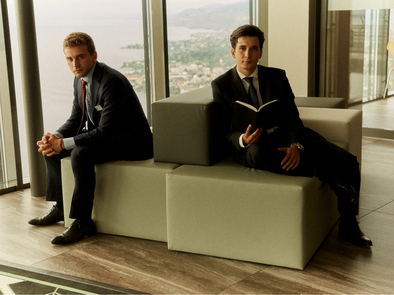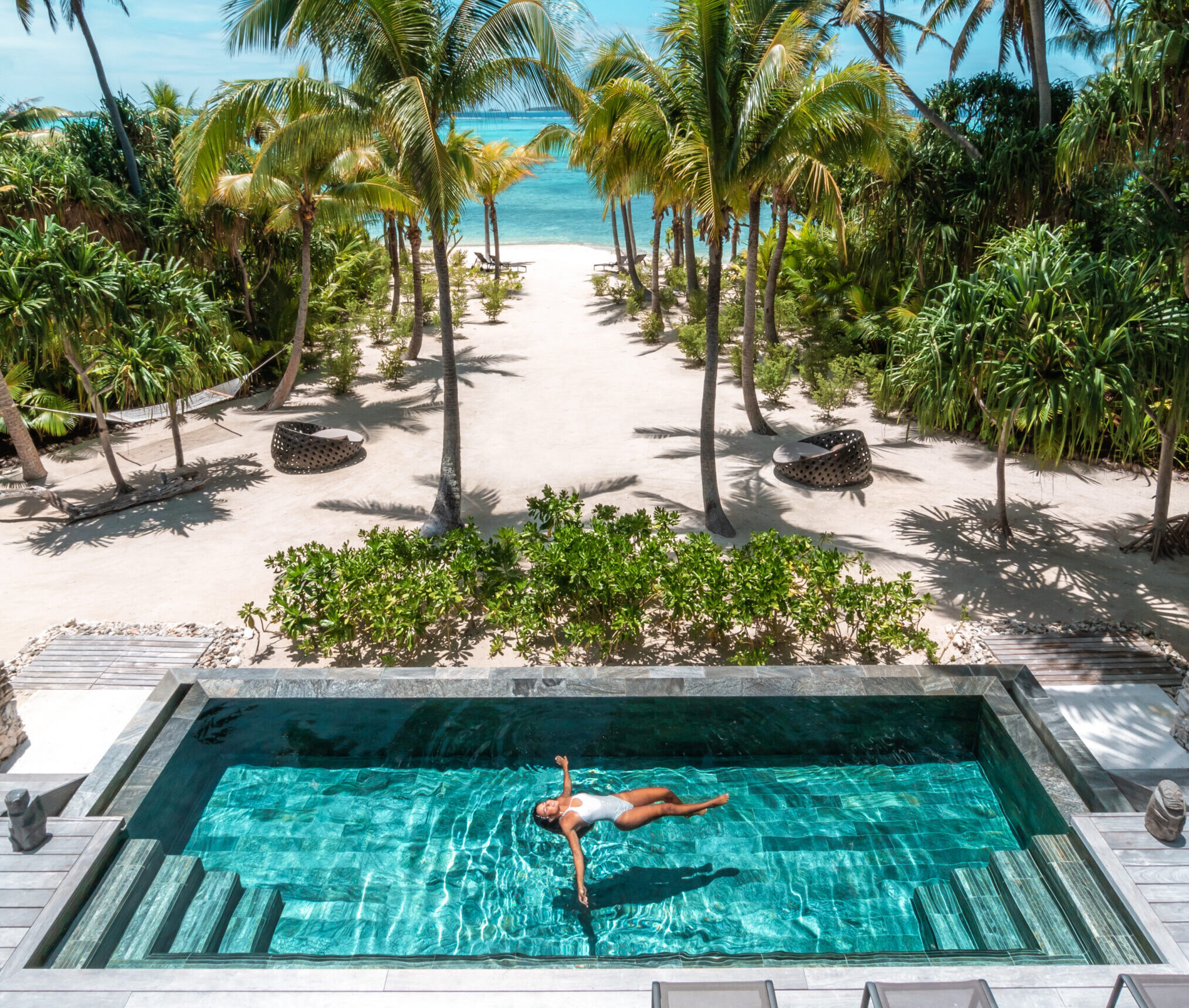

What is it like to be a luxury travel consultant?
In this article
Have you ever wondered what it’s like to create fantastic travel experiences? While the global luxury travel market is expected to grow by 7.9% by 2030, this is a great time to get into the industry. A luxury travel consultant’s role goes beyond booking flights and hotels; it’s about designing bespoke journeys and corporate travel that resonate with discerning clients. Consultants have expertise in hospitality, cultural understanding and meticulous planning to deliver seamless and exclusive travel arrangements for high-end clients. Their work, from securing reservations at the world’s most coveted resorts to arranging private tours of cultural landmarks, requires a deep understanding of customer preferences and an ability to anticipate client desires.
In this article, we explore what it’s like to be a luxury travel consultant, what the role entails and how to gain experience in the industry.
What is a luxury travel consultant?
Hospitality professionals passionate about travel who specialize in crafting bespoke experiences, focusing on creating unique, tailored itineraries for luxury travelers. They have extensive knowledge of high-end destinations, accommodations and activities and work closely with clients to understand their preferences and desires and to make sure their trips exceed expectations. Luxury travel consultants handle all the details, from booking exclusive hotels and restaurants to arranging private tours and special events.
This involves meticulous planning, attention to detail and a deep understanding of the luxury market. Consultants aim to create memorable and seamless experiences where clients can enjoy comfort, style and exceptional service. Whether they are organizing a romantic getaway, a family vacation or a business trip, their goal is to curate an extraordinary experience tailored to individual needs and preferences.
Role and responsibilities of a luxury travel consultant
Being a high-end travel advisor involves a unique blend of creativity, detailed organization and a deep understanding of client preferences. Each day is different because travel experiences are tailored to fit the specific desires of wealthy clients. The typical responsibilities of a luxury travel consultant include:
- Client consultation: meet customers to understand their preferences, desires and budget for their luxury travel experiences
- Customized itinerary planning: design bespoke travel itineraries tailored to the client’s specifications, including accommodation, transport and activities
- Reservation management: coordinate bookings for flights, hotels, restaurants and other exclusive services so all arrangements align with client expectations
- Destination expertise: provide expert knowledge on luxury destinations worldwide, offering insights into cultural experiences, attractions and local nuances
- Personalized service: tailored assistance throughout the planning process and during travel, addressing any requests or concerns promptly and efficiently
- Budget management: help clients manage their travel budgets effectively, recommending cost-effective options without compromising luxury standards
- Relationship management: build and maintain strong links with hotels, airlines, tour operators and other vendors to secure exclusive perks and amenities for clients
- Problem solving: resolve any issues or challenges that arise during travel, acting as a reliable point of contact for clients throughout their journey
- Travel documentation: make sure clients have all necessary documents, visas and insurance coverage before departure
What are the perks of being a luxury travel consultant?
There are numerous advantages for professionals dedicated to providing exceptional service and unforgettable experiences for affluent clients. These include:
- Global exploration: consultants often travel to exclusive destinations, experiencing luxury accommodation and cultural immersion
- Client relationships: building long-term relationships with high-profile customers can lead to repeat business and referrals, improving career stability
- Creative freedom: designing bespoke itineraries allows for creativity when tailoring service to individual client preferences
- Industry connections: networking with top-tier service providers and luxury brands opens doors to exclusive partnerships and insider knowledge
- Financial rewards: high commissions and performance-based bonuses reward consultants for their expertise and service excellence
What are the key challenges of being a luxury travel consultant?
Working in this field involves navigating a variety of demanding situations. Professionals must balance client desires with the complexities of organizing bespoke experiences. Some of the key challenges they face are:
- High expectations: clients expect flawless service and unique experiences, requiring meticulous attention to detail
- 24/7 availability: being available around the clock to address client needs and handle emergencies can be exhausting
- Logistical complexities: coordinating intricate itineraries, bookings and special requests requires exceptional organizational skills
- Keeping up with trends: staying informed about the latest developments, destinations and services is essential for meeting client demands
- Building relationships: developing and maintaining strong links with clients and service providers is time-consuming but necessary
- Problem solving: quickly and efficiently resolving issues that arise during trips is critical to maintaining client satisfaction
How do you get experience in the luxury travel industry?
Having prior knowledge is essential for understanding high-end client needs, building valuable industry connections and creating bespoke travel options. Examples of how you can gain the necessary experience in the luxury travel industry include:
- Hospitality degree: start by pursuing a relevant degree at a respected hospitality school. These programs often include hospitality internships with luxury hotels, resorts or travel agencies, which provide hands-on experience in high-end service standards and client expectations
- Internships: look for placements at prestigious hotels or travel agencies specializing in luxury services. These offer practical insights into essential operations and services
- Entry-level positions: apply for part-time or seasonal roles at high-end hotels or travel agencies. These jobs help introduce you to the tasks of luxury hospitality, from guest services to trip planning
- Networking: attend industry events, join professional associations and connect with experts in the sector. Networking can lead to mentorship opportunities and job referrals in the luxury travel sector
- Continuous learning: stay up to date on industry trends through seminars, workshops and online resources. Continuous learning demonstrates commitment and keeps skills current in this competitive market
- Build your reputation: become known for reliability, discretion and understanding luxury customer preferences. Positive testimonials and successful client engagements are essential for establishing credibility and attracting high-profile guests
- Career growth: leverage internships, entry-level positions and networking connections to progress into specialized roles in the luxury travel industry
Essential skills for success in luxury travel
To succeed in this sector, you need a good range of hard and soft skills. Some of the skills you need to succeed in this industry are:
- Client relations: develop strong communication skills to effectively understand and anticipate client needs
- Attention to detail: have a meticulous approach to planning and organizing luxury travel, from accommodation to leisure activities
- Cultural awareness: sensitivity and adaptability to provide respectful and inclusive experiences for clients from various backgrounds and preferences
- Problem solving: be adept at addressing unexpected challenges or changes in travel plans quickly and effectively
- Networking: build and maintain industry contacts to access exclusive services and offerings that improve the luxury travel experience
- Time management: demonstrate strong organizational skills to handle multiple client requests and deliver on tight schedules
- Flexibility: remain adaptable in a rapidly changing environment, accommodating last-minute client demands or unforeseen alternations to guarantee a seamless travel experience
Studying for the right hospitality degree will help you develop these skills and build your confidence, expertise, experience and contacts in the industry.

Set a course for success in luxury travel hospitality
Learn everything you need to know about luxury hospitality and hone your skills alongside industry professionals
Bachelor’s in luxury business
Career outlook for a luxury travel consultant
The opportunities for advancement in this role are widespread, driven by a growing demand for tailored and high-end travel guest experiences. Affluent clients seek unique trips, creating a steady market for skilled consultants. With the global travel industry expanding, opportunities for luxury travel consultants are abundant, particularly for those experts in niche markets such as bespoke tours, luxury cruises and exclusive retreats.
Progression in this field usually involves moving into senior consultant roles, management positions at travel agencies or even starting independent consultancy firms. Continuous professional development, networking and staying on top of travel trends are essential for success. High earning potential and the opportunity to travel extensively are significant incentives, making it an attractive hospitality career for those passionate about extravagant travel and exceptional client service.
Earning potential for luxury travel consultants
People working in this sector can aim for significant compensation, with salaries often exceeding those of standard travel agents due to the specialized expertise needed and high-end clientele. Income can range from $38,132 to $48,620 a year, depending on experience, client base and location. Performance-based incentives and commissions can further boost earnings, making this a lucrative career for those skilled in delivering exceptional, bespoke travel experiences.
Conclusion
A career as a luxury travel consultant offers a unique blend of creativity, strategic planning and client-focused service. By designing bespoke travel experiences, these professionals cater to the sophisticated tastes of affluent clients and ensure every trip is unforgettable. Their daily responsibilities range from managing complex itineraries to providing tailored recommendations and addressing client needs, while the role requires a keen understanding of high-end destinations, cultural nuances and high standards. Thanks to the demanding nature of the job, including high expectations and around-the-clock availability, the rewards are substantial.
Luxury travel consultants enjoy a range of benefits, including global exploration, building lasting relationships with high-profile clients and the satisfaction of crafting extraordinary experiences. To excel, you need strong communication skills, meticulous attention to detail and a robust network. For those passionate about high-end travel, this career offers financial rewards and the opportunity to impact clients’ lives significantly.
With the luxury travel market set to grow, the prospects for skilled consultants with a hospitality degree remain bright and promising.
Photo credits:
Main image: Getty PT STOCK

Grasp the fundamentals of luxury hospitality
An academic curriculum complemented by on-the-job experience and real-world immersion enables you to build a firm foundation in luxury hospitality
Bachelor’s in luxury business